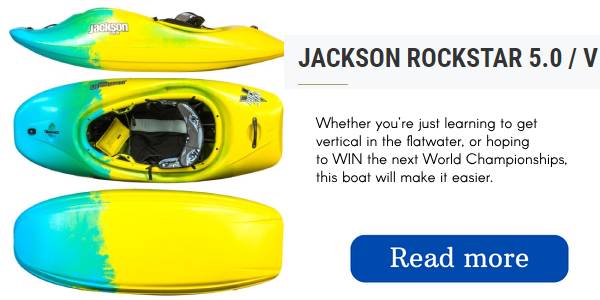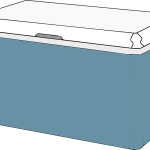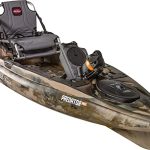You likely understand the feeling of freedom, peacefulness, and relaxation that accompanies launching a kayak. You are probably well aware of the aggravation that comes with hoisting your kayak onto your vehicle.
It’s possible that this is your initial time using a kayak, or that you are a skilled kayaker who has had a lot of experience with the sport. No matter what, you will require some kind of method to move your item if you possess it.
It might be a good idea to investigate what the top-rated kayak trailer is in the marketplace…
How to Choose the Best Kayak Trailer: Important Features To Consider
When researching possible kayak trailers to buy, the trailer’s maximum capacity is probably the most critical feature to pay attention to when choosing the right kayak trailer for your needs:
It decides if the trailer can take everything you need, both in terms of weight and size.
Consider the bulk and heaviness of your kayaks and how frequently you will be transporting them. That should be the least amount of capacity expected from the trailer.
How Many Kayaks Will You Haul?
What is the most suitable kayak trailer for me?
If you kayak alone, the answer’s simple enough. If you take part in kayaking activities regularly with family or a group of close companions, you should think of how many kayaks and any additional equipment you have to carry and determine the best trailer for the job.
Most kayak trailers have a capacity of somewhere between 250 and 350 pounds, and it is important to not surpass this weight limit.
Furthermore, different trailers accommodate different numbers of kayaks:
The majority of kayakists – single individuals, families, and paddling clubs – will find that the average trailer space of between one and four kayaks is plenty. Instead of buying a trailer that can accommodate ten or more kayaks, it may be beneficial to get one that is customized or create your own from scratch.
What Size Are Your Kayaks?
Trailers created specifically for kayaks are designed to hold either one or two of them, however, they may not exceed a certain size. You need to confirm that the trailer you are purchasing is enough to accommodate your longest and heaviest kayak.
Taking a vehicle out on the road with more weight than the trailer can handle is not an acceptable choice. Safety first, people! It is illegal, generally it must be four feet high, yet some states permit a bit more.
It might be a bit annoying to have to abide by the limitations – and you’ll likely need to carry out some measuring and calculations – but eventually you’ll get it sorted. Also, the majority of producers show the measurements for the trailer and the greatest length for kayaks which can be enclosed in it!
Want To Carry More Than Just Your Kayak?
The majority of you have come here looking for the perfect kayak trailer, and you mainly intend to utilize it to move a kayak or two securely. What about those of you who are looking for more flexibility from the trailer?
In that situation, you should investigate the multiple-sport trailers.
These are created to be extremely versatile, which means you could transport a variety of items and gear including mountain bikes, outdoor supplies, storage containers – as well as kayaks, of course. Therefore, they are ideal for holidays involving plenty of activities and camping excursions.
Kayak trailers are made a from variety of materials, the three most common ones being:
- Aluminum – If you can afford to spend a bit more and would appreciate having an ultra-lightweight trailer, aluminum is the way to go. Aluminum kayak trailers are generally light, straightforward to move, and rust-resistant – but they do cost more than steel ones.
- Non-Galvanized Steel – Non-galvanized steel is the cheapest material out of the bunch, and more durable than aluminum. However, without proper maintenance, kayak trailers made of steel tend to corrode and rust when exposed to saltwater.
- Galvanized Steel – Considered the mid-priced option, galvanized steel – or steel coated with a layer of zinc – is an excellent choice due to its resistance to rust and corrosion. The zinc barrier makes it ideal for saltwater environments. Plus, it’s cheaper and more robust than aluminum.
As long as you don’t sacrifice superior craftsmanship and construction quality, both options are acceptable. It’s worth remembering that materials of higher quality are more durable than inexpensive, non-galvanized steel.
When looking for a kayak trailer that fits your preferences and material, it is important to consider the trailer’s weight in relation to the towing capability of your car. It is generally not a concern for cars to haul a trailer packed with some kayaks, but it’s wise to assess it anyway.
Kayak Trailers: Features That Often Get Overlooked
Tire & Wheel Size
It might be a good idea to use small tires for kayak trailers that will only be carrying a light weight, as it makes it simpler to attach and detach your kayaks to the trailer frame because it is lower to the ground.
Although kayaks trailers equipped with smaller wheels don’t tend to be very durable, they can even limit your capacity to go on rough terrain.
Maybe it doesn’t appear to be a huge problem, but there will be plenty of situations where you’d need to take a route that is not on a main road to access the water. Kayak trailers with big wheels which can handle bumpy surfaces could be a useful option.
See if the trailer includes a spare tire as an extra.
The length of the tongue of the trailer, which is the distance between the hitch and the axle, determines the length of kayak that can be mounted on the trailer and determines how effortless or difficult towing such a kayak will be, given that the axle is situated at the middle of the loaded canoe.
Generally, larger-sized kayak trailers tend to be safer and more adaptable than smaller ones because they have a longer tongue. It can be almost impossible to drag a larger kayak if the tongue is too abbreviated.
If you want to avoid potential complications, you should accurately measure the size of your kayak at present and purchase a trailer with a tongue length that is suitable for it. Alternatively, you can opt for a trailer with an extended tongue.
Suspension System
Most kayak trailers lack suspension and generally don’t require it. However, although this doesn’t have to be an essential capability, it doesn’t mean that it wouldn’t be a nice addition in some cases.




